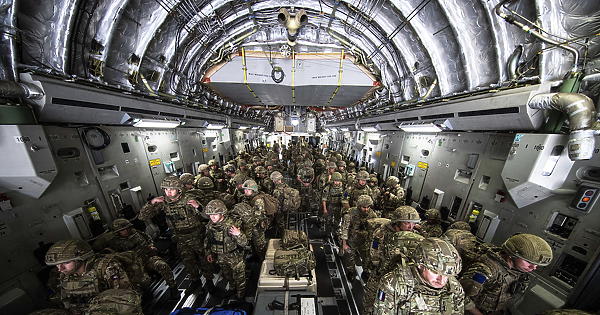British Home Secretary Priti Patel told the BBC in a statement on Wednesday that Britain had so far managed to evacuate 1,000 people a day from Afghanistan, where Taliban fighters have recently taken control. The British government plans to absorb several thousand Afghans in the long term. According to Patel, these are British and Afghan nationals employed locally by the British government.
London has previously drawn up a plan to resettle about 5,000 Afghan nationals working in the United Kingdom in Afghanistan, after the start of the withdrawal of international forces from Afghanistan.
The government announced Tuesday night that it would expand the program: In the long run, the country will host up to twenty thousand Afghans who are the most vulnerable and want to flee the Taliban – mostly women, girls, members of religious and other minorities. – Including another 5,000 this year.
According to Reuters, London acted in response to recent events in Afghanistan and pressure from the opposition and aid organizations. However, the opposition says this plan is undeveloped and not generous enough.
“As a country, we will do everything we can to help the most disadvantaged people who want to flee Afghanistan to start a new life in security in Britain,” Priti Patel said last night. The minister also asked other countries to take in Afghan refugees in an article published by the Daily Telegraph. “Britain is also doing its best to get other countries out of aid. We want to lead by example, but we cannot bear the brunt of it all alone,” he wrote in the article.
France evacuated 216 people from Kabul on Wednesday, including 184 “Afghan civilians in need of protection,” 25 Franco-Afghan dual nationals who fled to the French embassy in Kabul, and four Dutch, Irish and Kenyan Jean-Yves. Foreign Minister Le Drian said. He added that the plane headed to Abu Dhabi and from there to an unnamed airport in France. Agence France-Presse said 41 people had already been brought by France from Kabul during the day on Tuesday.
Many foreign governments are now trying to figure out how to respond to the Taliban’s takeover of power quickly. Despite the Taliban’s promises to change their attitudes toward women’s rights, many fear that there will be little change in this regard from 1996 to 2001, when women could only enter the streets and go to school with a male relative.












































